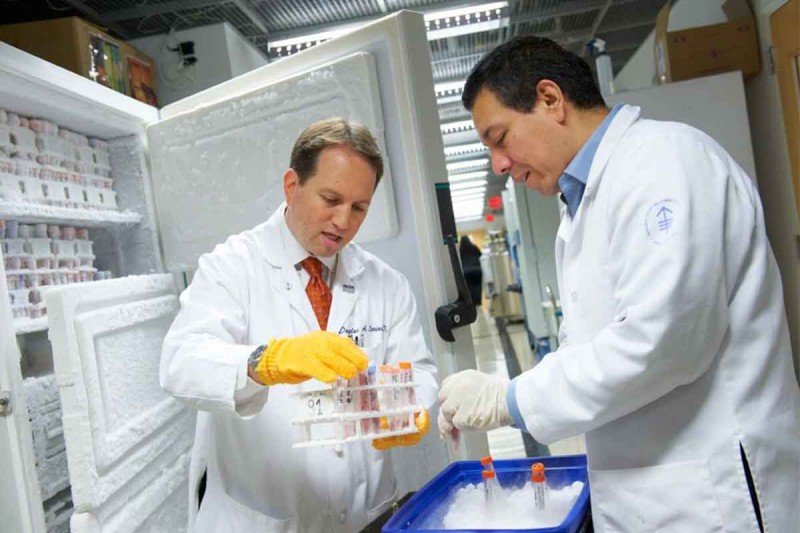
The more we learn about ovarian cancer, the more we realize we still have a lot to learn.
A new government-issued report from the Institute of Medicine, sponsored by the Centers for Disease Control and Prevention, outlines the progress researchers are making and challenges they face as they tackle ovarian cancer.
One key finding: We need to know more about the biology of ovarian tumors, especially where they begin in the body, in order to find new ways to prevent, screen for, detect, diagnose, and treat this challenging disease.
“Ovarian cancer is not one disease but rather has distinct subtypes with different sites of origin, genetic backgrounds, and disease behavior,” said MSK gynecologic surgeon Douglas Levine, who co-authored the new report, in a related editorial in the Journal of the American Medical Association.
Urgent interventions are needed in the wake of ovarian cancer’s devastation: More than 21,000 women are diagnosed with it each year and 14,000 women die from it. It is the fifth leading cause of cancer deaths among women.
Part of the response to this need is the worldwide effort currently under way to find new methods to screen women with no known risk factors for ovarian cancer — and in doing so, to catch more cases in their early stages.
Early diagnosis is essential, as surgery and other currently available treatments are more effective when ovarian cancer is identified before it has spread beyond the pelvis. But the disease is often aggressive and progresses quickly; only 40 percent of women who have it survive more than five years.
Genetic Testing Saves a Life
Morgan Melnikoff, a 34-year-old mother of three from Greenwich, Connecticut, wanted to avoid becoming a statistic.
After genetic testing revealed that she had an elevated risk of ovarian cancer, she underwent a preventive surgery to remove her ovaries, fallopian tubes, uterus, and cervix, called a radical hysterectomy. Dr. Levine was her surgeon.
Ms. Melnikoff worried about going into early menopause but ultimately decided that the surgery wasn’t worth putting off. “It came down to the fact that I don’t want to gamble with my life,” she recalled. “I have three young children. Dr. Levine sat me down and said that waiting until 40 is pushing it. By time you find out you have ovarian cancer, it was going to be too late, and that really scared me.”
Ms. Melnikoff’s decision spared her a lifetime of worry, said Dr. Levine. “Surgery to remove the ovaries and fallopian tubes has proven to be a lifesaver for women at high risk.”
Luckily for Ms. Melnikoff, she recovered quickly, is taking hormonal medications, and feels like herself again. “It’s been a very positive experience,” she said. “I would do it again, a hundred times over.”
Where You’re Treated Is Key
Ms. Melnikoff’s experience underscores another finding in the report: where women go to be screened and treated for ovarian cancer makes a huge difference.
Less than half of all women with ovarian cancer get the highest standard of care, according to the report. Also in the analysis: Being treated at a high-volume hospital or cancer center by a gynecologic oncologist — as opposed to a medical oncologist, who doesn’t specialize in women’s cancers — leads to better survival.
Dennis Chi, Deputy Chief of MSK’s Gynecology Service, says that MSK is a leader in the field because of “the cutting-edge research going on here for ovarian cancer” and our innovative approaches to patient care.
“We are up to date on the most effective treatments,” he says. “We have the best surgical team and the best medical oncologists in the world that treat ovarian cancer.”
